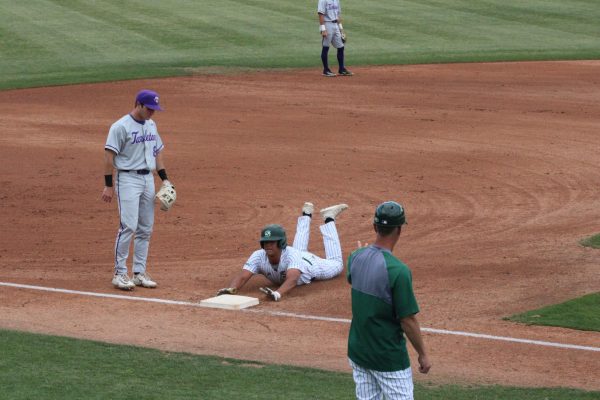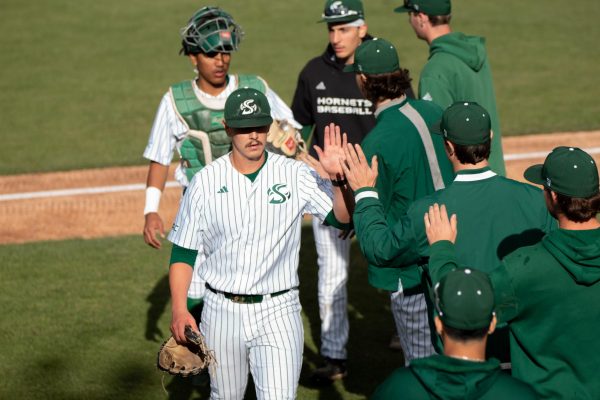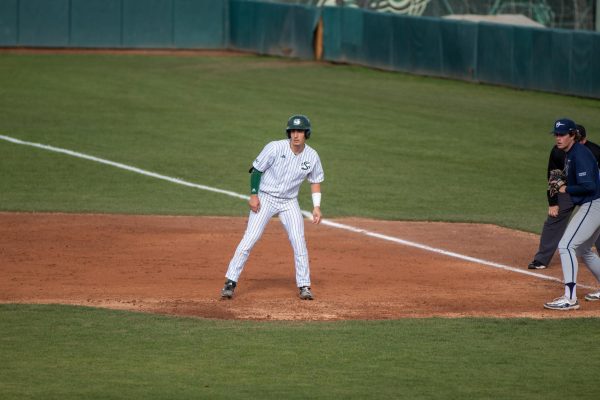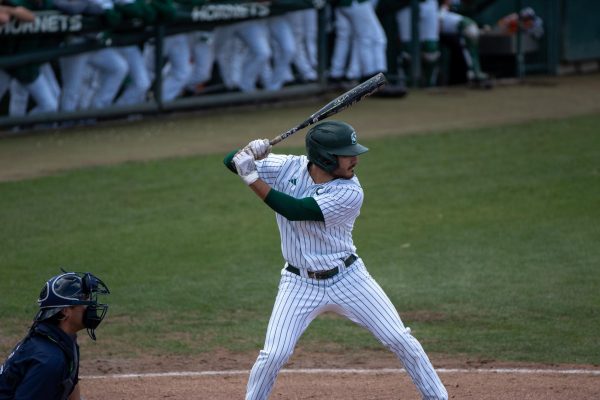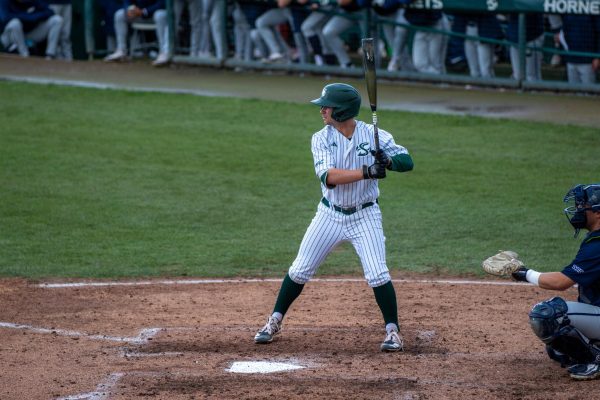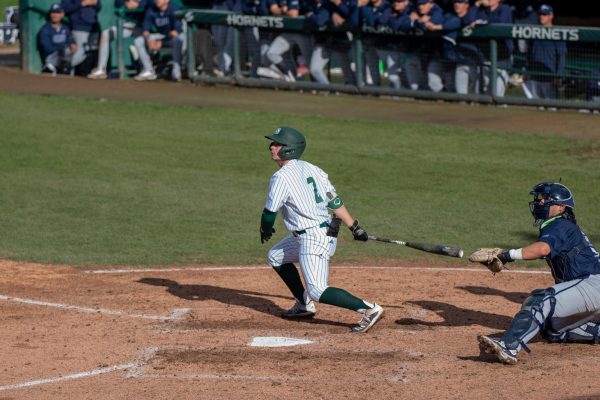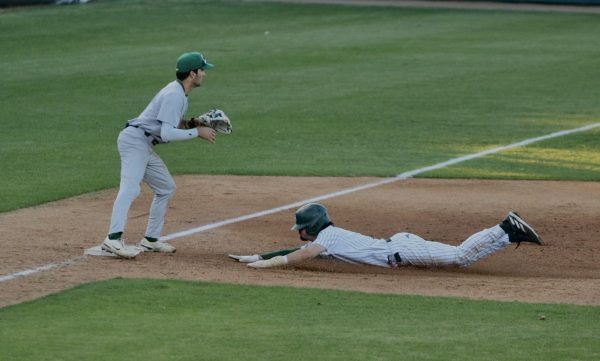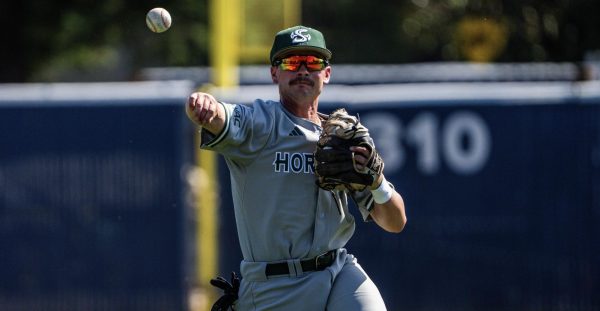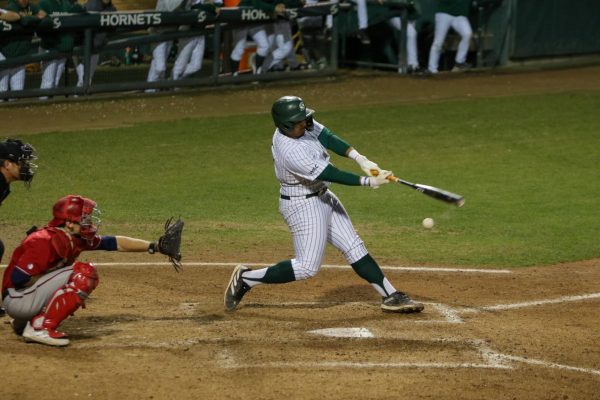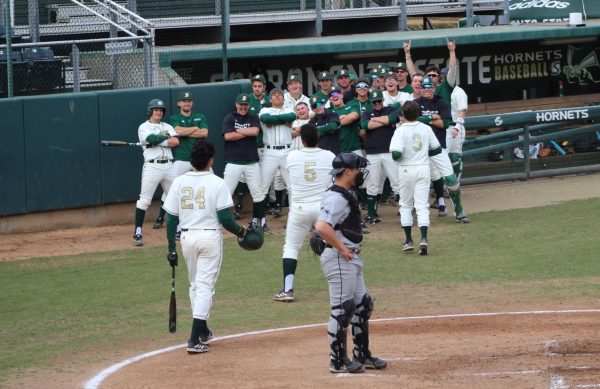Sac State baseball players head to Alaska for summer

May 31, 2012
Sacramento State catcher Derrick Chung steps up to the plate as the sun is shining bright on Growden Memorial Park in Fairbanks, Alaska. It is roughly 11:30 p.m. and he just hit a home run to put the Goldpanners on top.
With a culture thriving around salmon fishing, whitewater rafting and hiking, it seems unlikely baseball would be so popular.
“It was kind of like a dream come true,” Chung said.
Chung traveled north for two summers for a chance to hone his skills for next season.
“A lot of good major league players have played there before so I knew there was a lot of good competition up there,” Chung said. “It just made me a better player.”
When Chung arrived in Alaska, however, he was surprised at what he saw.
“When I first got there at 3 a.m., I got out of the airport and it was sunny outside,” Chung said. “I was like, ‘Where the hell am I?’ For the next week, I couldn’t go to bed.”
Fairbanks Goldpanner general manager Todd Dennis said the league helps college players get a small taste of professional baseball life.
“The grind of the season gives them their first taste of what it is like, in many cases, to fail,” Dennis said. “A lot have been all-stars their entire lives, but suddenly they get to Alaska and the competition is so great, players are finding that they have to dig deeper.”
Players are paired with host families for the two-month season and not only to get to work on their baseball skills, but also have an opportunity to take in the Alaska culture.
First basemen Clay Cederquist also spent two summers playing baseball in Alaska.
“You see some stuff I never thought I would experience,” Cederquist said. “On my days off I got to take in the sights. I got to go fishing and saw fish that were as big as me.”
Many players who have seen success in Fairbanks go on to be successful in the majors, like New York Mets pitcher Tom Seaver and home run king Barry Bonds.
But Dennis said playing up in Alaska is not easy.
“It is remote and it is so totally different here with the amount of sun we get, the players have to stand on their own two feet and adapt,” Dennis said. “If you are able to adapt to Alaska, you are able to adapt anywhere else.”
Summer baseball not only helps college players, but the surrounding Alaskan communities as well.
“The community of Fairbanks has always been supportive,” Dennis said. “Seaver said it best: ‘If you were a Goldpanner, you were considered a part of the community.’”
Dennis said each game varies in attendance, but there is one game of the year that attracts thousands of local baseball fans.
The Midnight Sun game is played every year on the longest day of the year. Started in 1906 as a bet between neighboring bars to see if baseball could be played at that time, the game starts at 10:30 p.m. and can last until 2 a.m., no artificial light is necessary.
Cederquist has played in two Midnight Sun games for Anchorage’s Glacier Pilots.
“The midnight game is something you can’t do anywhere else. People love it,” Cederquist said. “Once the first pitch is thrown you are ready to go no matter what time it is.”
Cederquist said the fans, especially the kids, treat the players like big league stars.
“You are a role model to all these kids,” Cederquist said. “We were all there once when we were kids and just I put myself in those kids’ shoes.”
Glacier Pilots general manager Jon Dyson said the team has been a staple in the community and has been the longest running sports franchise in Anchorage, dating back to 1969.
As summer approaches and Sac State’s season is coming to a close, the Hornets will send two of their starting pitchers, Dallas Chadwick and Tanner Mendonca, up to Fairbanks to see what it is like to play Alaskan baseball.
“Coaches thought it would be a good opportunity for me to get better and (gain) more experience,” Mendonca said. “It will be a great opportunity because it is a part of the country I’ve never seen before and I’ve never played in a summer league.”
But for the players who have gone, they will never forget their time on the Last Frontier.
“People up there are super nice and they are big fans of baseball,” Chung said. “They really appreciate what we do. They love you and they treat you like a professional player.”
Ryan Kuhn can be reached at @rskuhn






































































































































